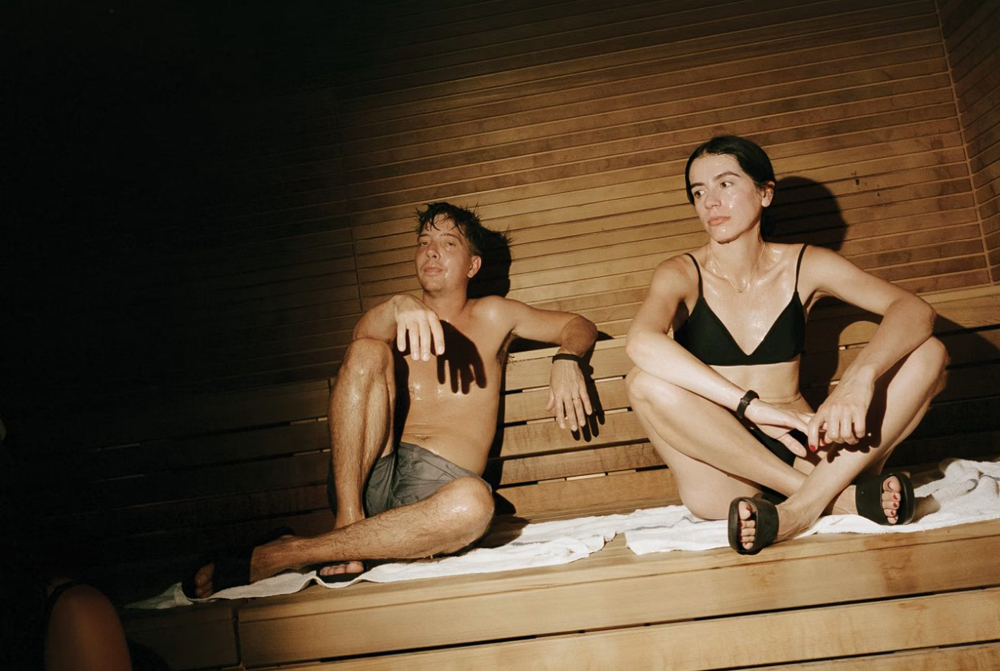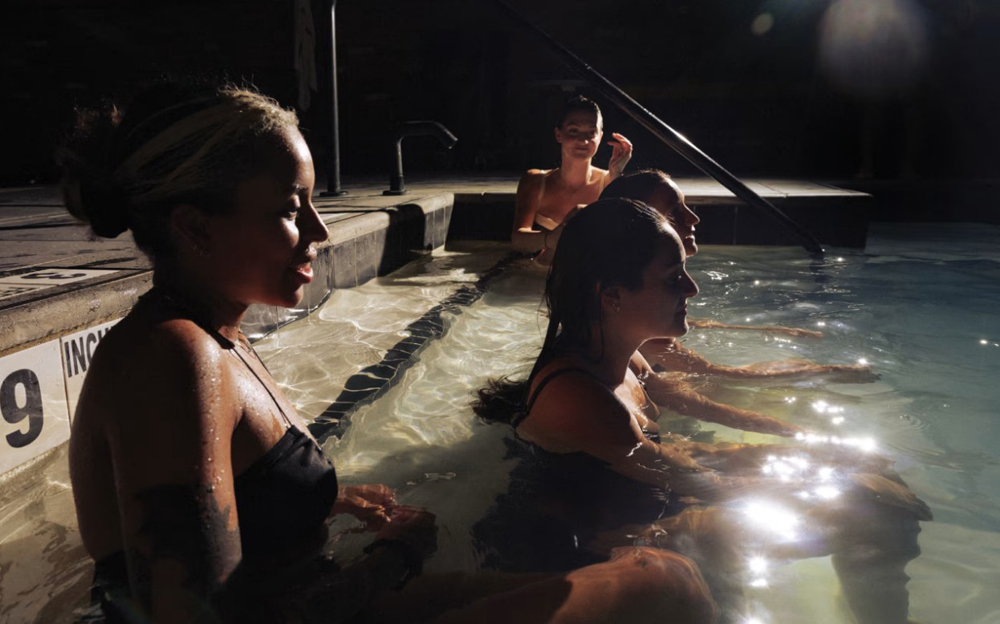Dating is a nightmare. Loneliness is a pandemic. Phones have ruined both our attention spans and our posture. Inflation makes life feel harder than it did just 5 or 10 years ago. If you ask Robbie Bent, CEO and co-founder of the sauna and ice bath chain Othership, the cure is simple: strip down to your swimsuit, sit in a very hot box for a few minutes, plunge into a frigid ice bath for a few more, and repeat. Ideally, do this with a group of strangers. You might make a friend, a business partner, or even a date.
Venues like Othership, communal spaces for the sweat-minded, are opening in cities from New York to Austin and San Francisco. They cater to a clientele increasingly aware of the benefits of heat and cold, seeking connection, and willing to pay a premium. Prices range from around 50 USD for a single session to over 300 USD for a monthly membership.
 |
Sauna rooms are becoming gathering spots for like-minded individuals who enjoy sweating together. Photo: Maddy Rotman |
Sauna rooms are becoming gathering spots for like-minded individuals who enjoy sweating together. Photo: Maddy Rotman
Communal bathing has been integral to global wellness cultures for millennia, from Turkish hammams to Japanese onsens. Saunas themselves aren't new to the US; most high-end gyms have them. Recently, podcasters Andrew Huberman and Joe Rogan, who focus on longevity and peak performance, have extolled their virtues.
What’s new is this wave of luxurious spaces, targeting those who already spend time and money optimizing their wellness, but want something friendlier than the gym and cooler than a health food store. Mom-and-pop operations are giving way to founders with venture capital backing and professional creative directors. The image of hairy-backed old men is being replaced by upwardly mobile startup founders and creatives. Saunas built for 6 to 10 people are now scaled to accommodate 90.
Bathhouse, which operates two large spaces in New York, plans to open seven more locations in the next two years. The Altar, a wellness club opening in New York this fall, is the brainchild of founders with backgrounds in high finance and fashion. It will offer saunas, cold plunges, peptide therapy, and hyperbaric oxygen chambers.
This clientele isn’t just interested in the health benefits of saunas, but the social ones, too. The Altar’s co-founders, Sheba Jafari and Henrique de Castro, along with their partner, photographer Stuart Winecoff, are all Goldman Sachs alumni. They see themselves as The Altar’s target market: ambitious, hard-working urbanites looking to optimize both wellness and socializing.
“We really seek out social experiences and care about our social experiences as much as our health,” Jafari said.
That describes 26-year-old Maddie Costantino, who works in social media marketing in New York. Roughly once a week, Costantino visits Elahni, a jewel-box-like space tucked inside a yoga studio on 27th Street. It has a cozy sauna, two cold plunges, and a small bar serving post-soak refreshments.
After changing into her bathing suit, Costantino spends an hour “enjoyably suffering” as she rotates between the sauna and the cold plunges. Because the space is the size of a Manhattan studio apartment, most sessions are capped at 4 people. She often goes alone, sometimes with a friend. In the sauna, Costantino said, people open up. “I’ve met so many nice people,” she said. “Like-minded people who are into wellness.”
Justin Juntunen, co-founder of Minnesota-based Cedar and Stone, which designs and builds saunas for residential and commercial clients, invoked an old Finnish proverb to explain the particular type of connection forged while sweating together: “All men are created equal, but nowhere is that more true than in a sauna.”
“You’re no longer a journalist, a lawyer, a teacher, a garbage man, or a politician. You’re just you,” he said.
When designing their first location, The Altar’s architects found inspiration in churches and nightclubs. “Essentially, it was all meant to be very seductive,” said Cyril Marsollier, who designed the space.
“You can have pretty intimate conversations,” said Vivek Moitra, 50, a critical care anesthesiologist in New York, who has been going to saunas for several years. “When you’re sitting in a sauna with 3 or 4 people and talking about wellness and experiences you’ve had, you really learn from other people.”
It’s not uncommon to see entrepreneurs holding meetings in the sauna, or companies hosting team cold plunges. Elahni co-founders Nick Rizk and Keane Tan have hosted bachelor and birthday parties. Bathhouse co-founder Jason Goodman estimates that 90% of their customers come with someone else.
It’s just that you can’t “thin-slice” someone in a swimsuit the way you can while waiting in line at a bar. “All status symbols are shed in the locker room, and they stay in the locker,” he said. “Ice bathing is almost the antithesis of scrolling through Instagram.”
Other kinds of connections can blossom, too. Why couldn’t a wellness club double as a dating app? Othership has hosted singles nights, where attendees wear bracelets indicating their relationship goals, from casual to serious. Two singles who happened to book the same session with another couple at Elahni hit it off and started dating. Jafari hopes it won’t be long before she can say a couple met at The Altar.
Shreya Aggarwal, 26, first visited Elahni hoping to pitch her line of candles to the space’s founders. Then she took a session, and now she returns monthly. “Even if you go alone and don’t know anyone, you’ll still have a good conversation,” she said.
Like the conversation she had earlier this summer in the sauna with Costantino, the social media marketer. They struck up a conversation and realized they could collaborate professionally. After their final cold plunge of the evening, they exchanged numbers and stepped out into the night.
 |
Customers are drawn to saunas not just for the health benefits but also for the social aspects. Photo: Maddy Rotman |
Customers are drawn to saunas not just for the health benefits but also for the social aspects. Photo: Maddy Rotman
Binh Minh (According to WSJ)












